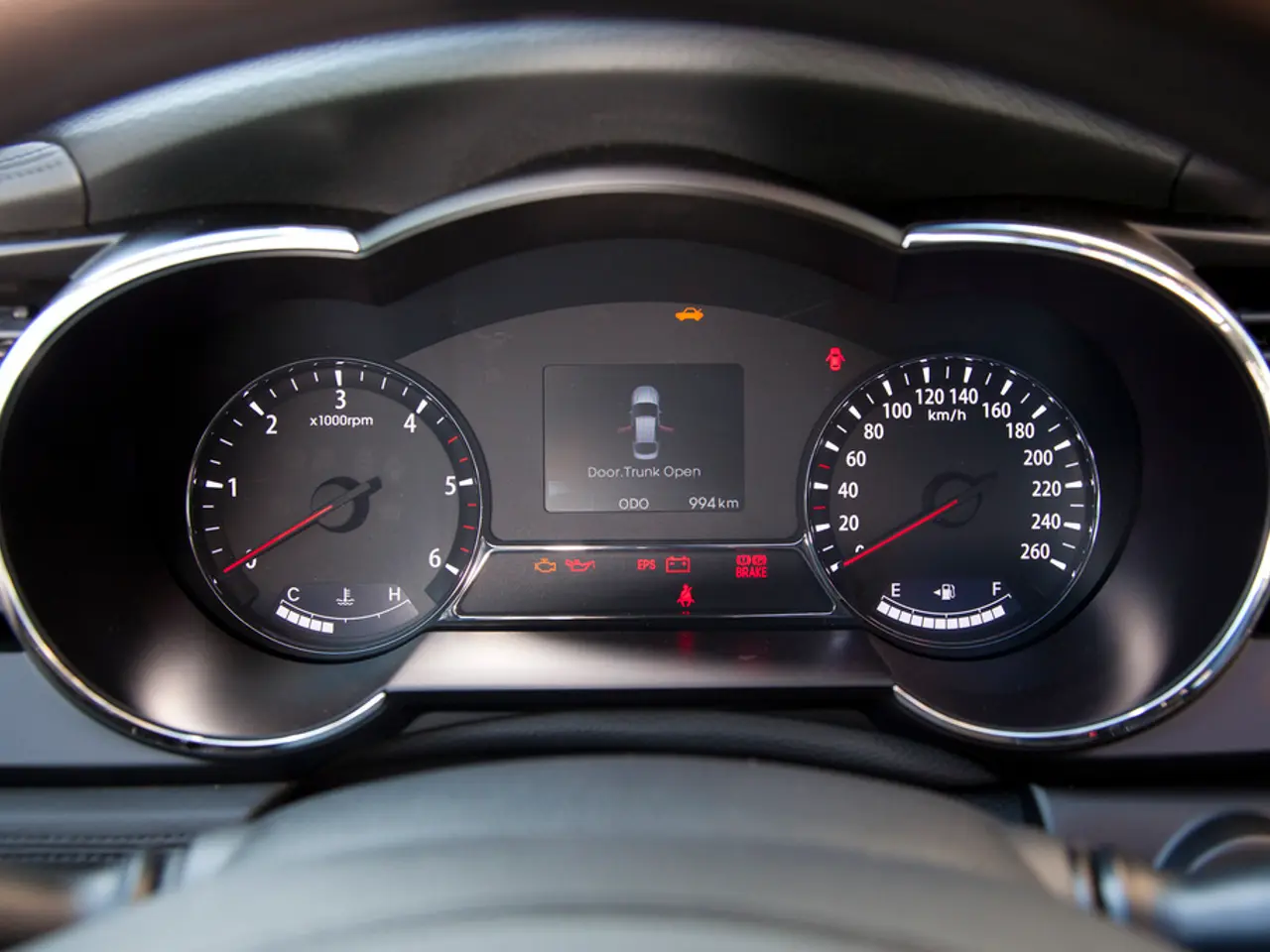German Automakers Trail in Electric Vehicle Range Performance
In a recent electric car range test conducted by the Norwegian automobile club NAF in collaboration with "Motor" magazine, the Porsche Taycan emerged as the clear leader, showcasing significant improvements in range and charging capabilities compared to earlier models.
The latest test results, which take place twice a year in summer and winter, reveal a significant difference in range among the 27 electric cars tested. While some vehicles, like the Lucid Air, covered an impressive distance of 1,130 kilometers, others, such as the Volkswagen ID.Buzz, fell behind with a range of only 613 kilometers.
The test includes charging stops when the battery has only 20% charge left and recharging to 80%, providing a realistic representation of real-world driving conditions. The results highlight the progress made by the German EV segment, with Porsche's 2025 Taycan variants showing considerable range gains. The Turbo S Cross Turismo, for instance, boasts an EPA range estimate of 261 miles, while the rear-drive sedan with a larger battery offers an impressive 318 miles.
However, earlier efficiency shortcomings affected some German EV models, with Porsche’s Taycan being a key example. Its first-run models initially fell short in range compared to competitors like the Ford Mustang Mach-E. However, Porsche addressed these issues with battery and charging improvements, leading the Taycan to perform very well in the latest tests and even winning Car and Driver's EV of the Year.
Despite the progress made by German brands, concerns about range still persist among potential electric car buyers. Germans often cite purchase price, range, and insufficient charging options as reasons for not buying electric cars. The test results may serve as hope and convince consumers of the viability of electric cars for long-distance travel.
The Tesla 3 came in second with a range of 986 kilometers, while the BMW iX XDrive60 finished in third place with a range of 942 kilometers. The manufacturers' stated range was compared with the actual range in the test, with 15 vehicles meeting or exceeding the stated range.
The latest test results may challenge the common perception that electric cars have made significant strides in terms of range. While the average range for electric vehicles was approximately 151 kilometers in 2014, it had increased to approximately 425 kilometers by a few years later. However, the test results may indicate that there is still room for improvement in the performance of electric cars.
The results of the test may cause skepticism among potential electric car buyers, but they also underscore the technological advancements being made in the industry. As electric vehicles continue to evolve, we can expect to see further improvements in range and charging capabilities, making them an increasingly attractive option for long-distance travel.
- In the latest electric car range test, the Porsche Taycan demonstrated remarkable advancements in range and charging capabilities compared to earlier models, indicating progress within the automotive industry.
- Regardless of the improvements, concerns about range still linger among potential electric car buyers, with factors like purchase price, insufficient charging options, and current range being significant deterring factors in Germany.
- Technological advancements are being made in the industry, as evidenced by the Tesla 3's second-place finish with a range of 986 kilometers and the BMW iX XDrive60's third place with a range of 942 kilometers.
- The test results reveal that while electric vehicles have made strides in range since 2014, there is still room for improvement, signaling a continuous pursuit of excellence within the electric-vehicle segment of the finance and technology industries.




